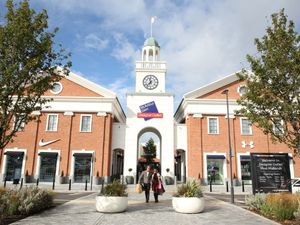Growth could be held back by skills shortage, experts warn
Recruitment of skilled employees is a key concern for manufacturing businesses in 2020, new research has found.
Opinions of the manufacturing industry have been gathered at a time of significant commercial and political change.
Brexit uncertainty is still concerning UK manufacturing industry with 94 per cent expecting the UK’s exit from the EU to have an impact on their business, with future trading tariffs and global economic conditions cited as two of the top concerns.
The UK government still has a long way to go to reassure the industry, with 80 per cent of respondents viewing existing export incentives as ineffective, while 62 per cent note that their business’s profitability has been affected by the cost and/or availability of raw materials.
National audit, tax, advisory and risk firm Crowe has worked in conjunction with the Confederation of British Metalforming on the research.
Despite uncertainty over the impact of Brexit and wider global economic issues, there remains a cautious mood of positivity for growth prospects during 2020 and beyond with the majority of respondents (59 per cent) expecting their turnover to grow in the next 12 months.
recruitment and talent retention challenges topped the list of specific concerns for 2020, with 21 per cent of respondents identifying this as their biggest barrier to growth for the next 12 months – ahead of Brexit which was cited as the top concern by 19 per cent.

Most businesses (81 per cent) admitted to having difficulty in recruiting skilled employees largely due to candidates not being available locally (44 per cent) or not being available in the marketplace (33 per cent).
Couple this with a positivity shown for employing foreign nationals (85 per cent) and an ambivalence towards the minimum wage (60 per cent said it does not affect their business), and it is clear that a skilled worker shortage is the largest restriction for the UK manufacturing industry and must remain a priority for the government when considering a new global points-based system for immigration.
Johnathan Dudley, partner and head of manufacturing at Crowe, based at Oldbury, said: "Many in the sector remain bullish about growth prospects in 2020, and it is clear that businesses are all looking to the same issues that will make-or-break those growth target ambitions for the year ahead. It comes down to three Ts: trade, tax and talent.
"Manufacturing businesses have complex and wide-ranging supply chains that are not bound by geography and sector, so the picture is complex. Clearly the cost and supply implications of a major economic event like Brexit will need to be monitored, but it may be that reduced friction with non-EU trade partners could mitigate any rise in friction in terms of EU trade.”
He added: "On the policy front, the Government must do more. As well as an industry desire for export incentive reform to make the regime more effective, there is a communications job to be done to fix awareness issues. HMRC statistics show only 1% of companies are claiming R&D cash tax credits, it is clear that businesses are not taking full advantage of this valuable relief. There also needs to be effective incentives to encourage investment in modernisation and automation that are no longer linked to ‘job creation’ which has discouraged productivity improvement based investment in the past and is inappropriate in a sector where there is a clear skills and manpower shortage that could be bridged by embracing ‘Industry 4’ technology.’’
"While the skills shortage has impacted the sector over the last few years, it is clear that this has now progressed to become a major threat to growth. Limitations both perceived and real, largely driven by the possibility of more restrictive movement post-Brexit, on the one hand will be countered by wider access to non-EU nationals, but this is subject of course to the detailed implementation of proposed ‘point based’ system included in the Conservative election manifesto."
The research also saw the effectiveness of the apprenticeship levy system severely criticised with just six per cent of respondents rating the scheme ‘very effective’ in contrast to 60 per cent rating it as ‘not so’ or ‘not at all’ effective.
The industry is also displaying a reluctance towards investment and borrowing, perhaps unsurprising given the political and economic uncertainty over the last few years. Almost half (43 per cent) of respondents funded activity from existing resources in the last year, indicating limited or stunted growth. Just seven per cent noted ‘cash flow’ as a barrier to growth while 19 per cent cited ‘working capital restraints’.




